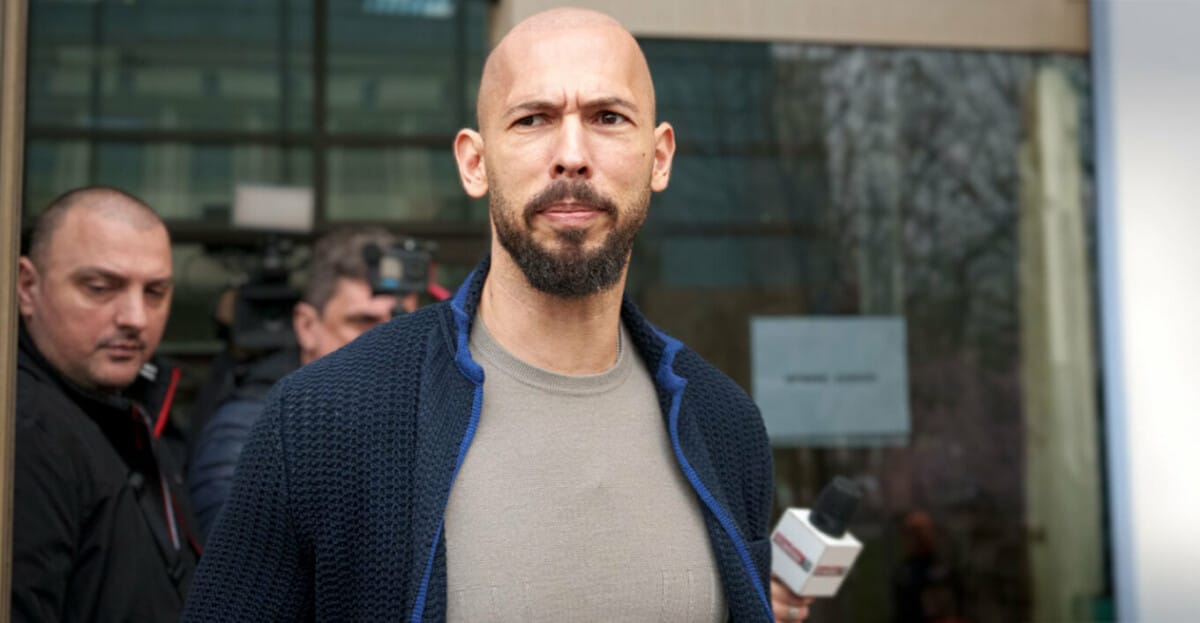Andrew Tate’s Courtroom “Win” Doesn’t Equal a Cultural One ⚖️🔥💭

Controversial influencer Andrew Tate will face no criminal charges in the UK over allegations made by multiple women, the Crown Prosecution Service confirmed that the legal test to prosecute hadn’t been met. The same women are now pursuing a civil case through the High Court.
Tate walked out of court with what many headlines are calling a legal “win.” For his followers, it’s fuel to the fire. For women, it’s another reminder that innocence in a courtroom doesn’t always erase the cultural damage already done.
In his own words, Tate called the ruling “another step closer to complete exoneration.” But while the courts debate absolutes, women are left grappling with the cultural fallout, and that’s a much harder win to measure.
The reality is that Tate’s words and ideology stretch far beyond a courtroom. His reach has already shaped the way too many young men view women, and the way women move through digital and real-life spaces. Even with this outcome, the culture doesn’t just reset.
Tate’s sit-down with Piers Morgan only added to that tension. Broadcast as a debate, it became another arena for him to frame himself as misunderstood, strategic, even victorious. For his supporters, it was validation. For women, it was another reminder of how easily the media mistakes provocation for perspective and how power always finds a platform.
After the interview, historian and commentator Tessa Dunlop and Triggered host Samara Gill joined Piers to discuss the backlash. Dunlop voiced discomfort with Tate being given airtime at all, while Gill questioned whether someone who hasn’t been convicted should be denied the right to speak. Their exchange summed up the wider divide between those who see this as dangerous platforming and those who call it due process.
We’re already seeing the ripple effect. Teachers are reporting classrooms where boys parrot his language back at girls. Social media is flooded with clips that strip his messages of context but keep the misogyny intact. Even in gaming spaces and group chats, Tate’s soundbites have become shorthand for power. So while the court hands down a ruling, women and girls are still left navigating an environment that feels stacked against them.
But here’s where the nuance matters. FROW has always been clear: women are our forefront, and we’ll always believe a woman first. Yet we also can’t ignore that false accusations exist and they ruin lives too. A recent video by content creator Bouncer showed a woman openly admitting she wanted to falsely accuse a man of rape simply because she no longer liked him. There’s nothing empowering about that. It’s messy, it’s cruel, and it drags all of us down.
False claims don’t just damage the men they target, they damage women too. Every lie fuels scepticism, making it harder for genuine survivors to be heard, believed, and protected. It chips away at the progress women have fought for, handing ammunition to those who already dismiss our voices.
This is where the conversation has to evolve. Believing women doesn’t mean silencing men. Supporting due process doesn’t mean dismissing women’s stories. Both can and must exist at once.
The courts will debate legality. But culture? That’s on us. It’s on the platforms, the parents, the schools, the conversations at the dinner table. It’s on whether we teach boys that respect isn’t optional, and whether we create a space where girls know their voices hold weight.
So yes, Tate might celebrate his “win.” But the bigger question is whether women feel like we’ve won anything in this. The answer, as always, is more complicated. And that’s why FROW exists to hold space for the grey areas that headlines alone can’t cover.

